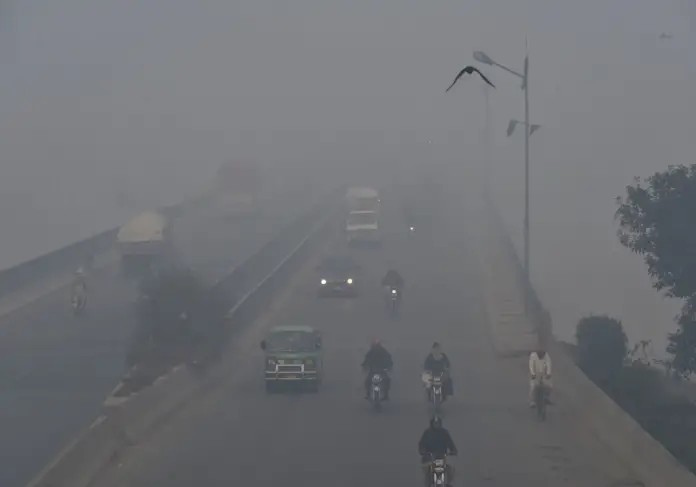In a bid to safeguard public health from smog in the coming winter, the Punjab Environmental Protection Agency (EPA) is conducting operations against pollution-causing industrial units without exercising environmental laws, it was learnt on Thursday.
Sources said that EPA’s ongoing operation is an “eyewash” as its officials are taking action under different sections of the Pakistan Penal Code (PPC) instead of penalizing polluters under the Punjab Environmental Protection Act (PEPA).
Lahore has become one of the most polluted cities in the world and during the last three years, its air quality has worsened to an alarming level owing to alleged negligence of the district environment office. Sensing the gravity of the situation, the EPA director-general on June 14 constituted five anti-smog teams in five districts – Lahore, Kasur, Sialkot, Sheikhupura and Gujranwala.
According to a notification issued in this respect, EPA officers were given the mandate to take action against pollution-causing units under PEPA’s Section 16 (1), (2) & (3). The teams were directed to take action against units using substandard fuels or generating excessive smoke through the Riggleman scale or any other suitable equipment. Monitoring teams were also directed to perform activities from 7 pm to 4 am to ensure that no polluting units are functional during night hours.
In the past, the EPA had conducted several operations against pollution-causing units and sealed them for not complying with environmental laws but the move proved futile as all such units managed to re-operate in their previous capacity.
The EPA is carrying out its recent operation following its previous practice of not taking action under Section 16 of the environmental act for reasons best known to them. Sources said that polluting units always manage to re-open their business as EPA officials remain reluctant to take action against them under environmental law. “Instead of taking action under Section 16 of the environmental act, EPA officers have been sealing units under Pakistan Penal Act’s sections 188, 268, 269, 270, 291, which are bailable offences,” they said and continued that EPA teams sealed some factories under PPC’s section but they resume work after breaking seals. They said that the penalty for violating PPC’s sections was also very minor.
Moreover, sources said that in the past EPA teams had lodged multiple first information reports (FIRs) against a factory under PPC but the owner could not be imprisoned by any court of law.
“Had they charged the polluters under Section 16 of the PEPA, it would have been very difficult for them to resume work until compliance with environmental laws,” they added and further disclosed that several pyrolysis plants, which were charged under the PPC, were still working and even their number had increased in Lahore.
Talking to Minute Mirror on condition of anonymity, an EPA officer said that despite having powers of hearing polluters on the spot, EPA teams shouldn’t bother to issue Environmental Protection Order (EPO) under Section 16. “When an EPO is issued and a factory is sealed it can be de-sealed after tribunal’s directions,” he added.
Environmental lawyer Sardar Aasif Sial was of the view that taking action under the PPC instead of the PEPA was tantamount to facilitating polluters.
Several attempts were made to contact the EPA spokesperson for his comments, but he was not available.







